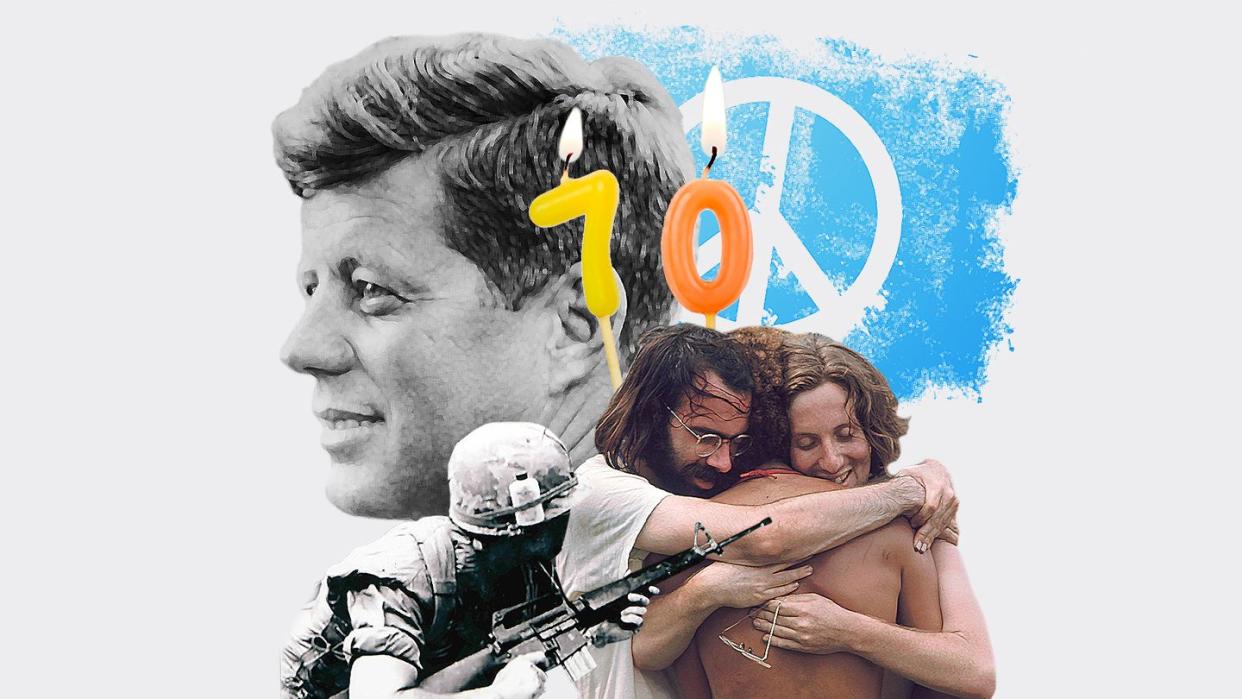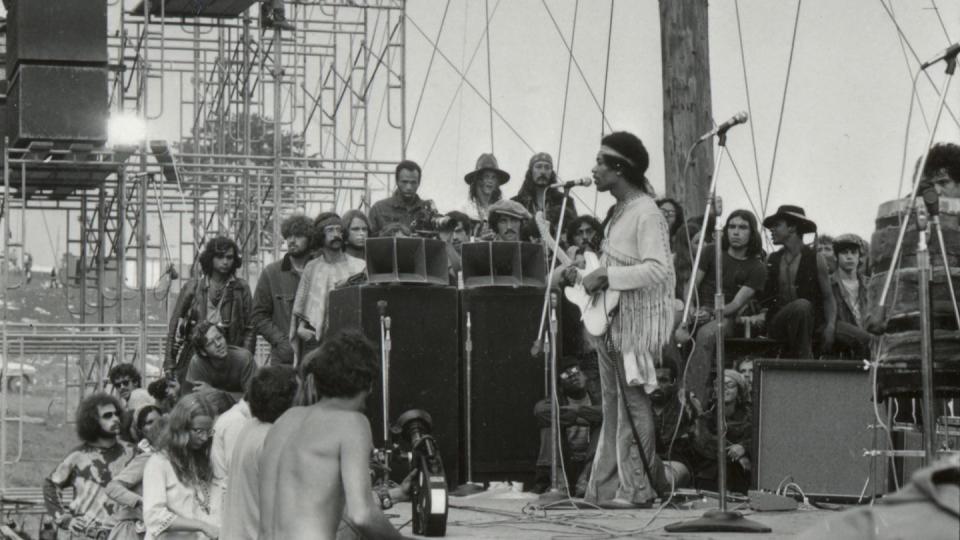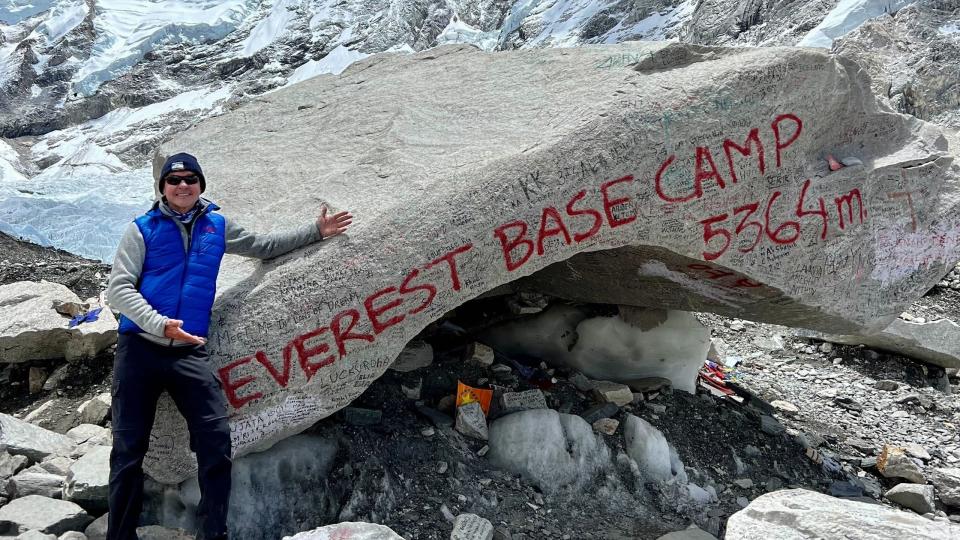A Baby Boomer Puts His Generation on Notice

And just like that, I turned seventy. When I was in my thirties and forties, my father would tell me that life moves very fast, so I had better focus on all the things that were important to me. He still tells me that as he approaches his ninety-first. birthday, incredulous that he has that number next to his name. I’m convinced that he will live to one hundred or older, a milestone that is becoming more and more normalized. And although science says that genetics only account for 20 percent of our individual life expectancy, I’m hoping that I got an extra dose of genes since my mother almost made it to eighty-nine. Fortunately, I work hard on the other 80 percent that includes exercise, diet and being diligent about my health.
I’m one of those famous or infamous baby boomers, now between fifty-seven and seventy-five years old, who represent 71.6 million people in the United States, or 20.5% of the population. As some of my generational friends leave planet earth, the millennials have just surpassed us at 72.2 million, or 21.6 percent. But we are still a force and don’t plan to go quietly.
We boomers are used to being maligned. Throughout our lives we have been accused of being self-centered, selfish, ambitious, annoying and obsessed with our careers.
It’s all true. But I would argue that without the collective agitations of the baby boomers, there might not have been a lot of progress in the world. Unlike the generation that came before us that in our eyes were conformist, suburban seeking, boring people, we had a lot of other ideas and we decided to blow up a lot of things. It’s also true that we didn’t follow up on a lot of what we challenged. Earth day was our proclamation to help the planet. Established in 1970, here we are fifty-three years later, and things have gotten pretty dire.
But we did spark some meaningful change that put the culture on a different course. We supported women’s rights and civil rights and gay rights. And while it’s true that there is still sexism and racism and homophobia, fanned by the far right, we can step back and look at the enormous progress that has been made in our lifetime. Without the agitation of the boomers, who knows where we would be on these fronts? We also fueled the fitness and wellness movements that led to a healthier generation overall and of course fed our vanity along the way.

We wanted lots of sex (veiled as free love) and drug experimentation. And long before the mega concerts of Taylor Swift and Beyonce, 400,000 of us frolicked in the town of Woodstock in 1969, listening to thirty-two performances and doing all sorts of things that our parents would have been shocked to learn about. We also proclaimed, “Give peace a chance” and “Don’t trust anyone over thirty,” especially since we had all the answers!
As a working-class kid who was the first in my family to go to college, I remember waiting for my future to be derailed by a low draft number that would require me to join the military and perhaps be sent to Vietnam. Both of my parents were in the Air Force, so I knew it would be my civic duty, but the lottery of life spared me. However, I watched other eighteen-years-olds in my class leave school as they were drafted. For most young people, it’s hard for them to understand that something called the draft affected the young lives of my generation and those before us, until it ended in 1973.
Friends from my neighborhood were sent to Vietnam, and I joined the marches and moratoriums to protest what we all saw as a senseless war. Some of those neighbors came home in body bags. Regardless of how I felt about the war, I honored them and others who went to serve, as I believed in America.
It’s true that every generation claims that they have experienced trauma in some way, and we were no exception. I was ten years old when JFK was assassinated and I witnessed my father sob for the first time. As a first generation Irish-American, dad saw Kennedy as a beacon of possibility. Then Martin Luther King was killed, followed three months later by Robert Kennedy. Two years after that, we watched our fellow students being shot at on the campus of Kent State. These were traumatic events that left an imprint on us that we still carry today. Then there were recessions and the oil crisis, runaway inflation in the seventies, and Watergate. We also experienced the AIDS crisis in its full fury, as young, vibrant men lost their lives. Today’s young gay people can’t fully understand that time due to available medicines and PrEP.
But our generation has remained resilient and optimistic with all these tragedies that we have experienced.
We have lived a life that has now spanned decades and still believe that overall, we have made great strides as a generation. But where do we go from here to secure a legacy that we can be proud of, and the next generations can be inspired by?
To my fellow boomers, I say: Let’s go back to our activist roots and focus on making a more significant impact on the world. In America, more than 70 percent of all assets and wealth are held by people over fifty-five. That’s $92.3 trillion dollars. We came of age in a time and economy that allowed many of us to grow those assets, as we built our American dream. Not everyone had that good fortune, but for those who did, what is the plan?
My suggestion is to stop obsessing about amassing and to also stop obsessing about leaving big inheritances to our children. We need to put that money to work for social impact now.
There is plenty of need—from climate change and the environment to social justice to food insecurity and so much more. Some of my fellow boomer friends and I have started a Foundation to help individuals and families in economic need. I serve on a university board and have established a scholarship there for a first-generation student who might not be able to attend college without assistance. Many are making similar commitments, but the world needs us to step up in a bigger way.
I’ve paid for the education of kids in my family and helped with mortgages and trips. They are now launched and have to take on their own financial future without expecting a big inheritance from me. I want my personal legacy to be about my contribution to social impact where I can make and see a difference. Each of us can play our part in our own way. Let’s rekindle that activism that we felt as young adults.
If money is an issue, then invest your time and energy in ways to give back that will have meaning. My friend Anh Yu Sawyer, who is in her sixties, volunteered with kids in the refugee community who have the potential for higher education. A refugee herself, she coached them on college essays, how to apply to schools and how to find scholarship money.
My generation had the benefit of affordable college tuitions and many of us built professional careers that have now given us great wisdom, perspective, and experience. Companies need to tap into older employees for intergenerational work projects. For the first time in history, there will be five generations in the workplace. Seasoned employees can bring enormous value through mentoring and advising in all kinds of new work models. It also means that instead of moving people out in their 60’s, companies should find ways to retain people in that life stage with new kinds of assignments.
As a generation, we are used to shaking things up and there is a long list that we can take on. It includes protecting future generations with social security benefits to providing extended healthcare and making sure that our democracy is not undermined. As a voting bloc, we can demand this from politicians. Start screaming loud with our big mouth boomer voices and start beating the drum for the future well-being of our kids and grandkids.
While we're doing all of that, I’ve got a suggestion for what should be the next big agitation from my generation. Borrowing from our past playbook of change, we now need to focus on the new script for what being over sixty should look like in the future. We are in the era of the New Longevity and that is the next big revolution that we can lead. Our agitation is to redefine aging.
If someone is sixty and healthy, they have the probability of living to ninety-plus. The Stanford Center on Longevity has published “The New Map of Life.” The one-hundred-year life is already here. While some of us will live it, many more who follow us will have a lifespan that far exceeds what has been the norm. The science predicts that today’s five-year-old has a 50 percent chance to live to a hundred. Medical advancements and an ongoing focus on better lifestyle choices will continue to move life expectancies up to higher and higher levels.
What it means is that we can no longer think about retiring at sixty, but rather re-firing into a second half of life that will look completely different than the current script of playing golf and visiting the kids.
We need to think about new careers at sixty or older, becoming entrepreneurs, going back to school, starting new relationships, staying fit and healthy and becoming role models for our generation and those that follow us.
I’m hoping to be seen as a “Re-Imagineer”—someone who is redefining the second half of life with new kinds of ways to live with meaning and purpose beyond retrenchment, reflection, and introspection.
At sixty, I ran a marathon in Antarctica, completing seven marathons on seven continents. At sixty-four, I went back to school to get a master’s degree in Nonprofit Management. At sixty-seven, I became an entrepreneur in a new business and to celebrate seventy, I hiked to the Everest base camp and ran the Tenzing Hillary Everest Marathon down. I’ve got a lot more on my list that is filled with action and achievements. And yes, I’m also an annoyance to many people in my life.
But there are many people like me rethinking their sixties, seventies and eighties. Someone who I greatly admire is my friend Alan Patricof, considered the father of venture capital. He launched a new business in his early eighties, completed the New York City marathon at eighty-eight and, as he approaches ninety, is about to get remarried. Alan plans to live to 114 and, trust me, you want to be him.

Much like how women changed the narrative and possibilities with the women’s movement, the boomers need to lead the charge for The New Longevity movement. Regardless of gender, race, religion or political beliefs, everyone will move into this period of their life and we can bring collective change to what living longer will look like in a more dramatic way.
I now surround myself with like-minded individuals, the age innovators who are the front runners for this new revolution. I’ve even started a business called ROARforward to promote this idea.
Through us, future generations will see what the possibilities and choices are that can happen in the second half of their lives in new and exciting ways. As the saying goes, “If you can’t see it, you can’t be it.” Maybe that is the final piece of our legacy of agitation.
At seventy, I look out another twenty or more years and ask myself what contributions I can make to myself, my family, community and the world. While I may get to one hundred years old, I’m also a realist that biology dictates that our bodies and sometimes our minds begin to break down and that we have our own mortality to contemplate.
In recent conversations with my father, we talked about how the fast is getting faster. It’s led to an intense scrutiny in how I want to spend my days and weeks and remaining years. Ask anyone my age and they will tell you that they have done the editing. Cut out the bullshit and focus on the authentic. Do the things that bring you joy and always reinvent.
I hope to agitate my way til the very end—rejecting and defying the outdated conventional, being age-proud, and rewriting the script for the second half of life.
At seventy, I’m in this for the long haul.
You Might Also Like